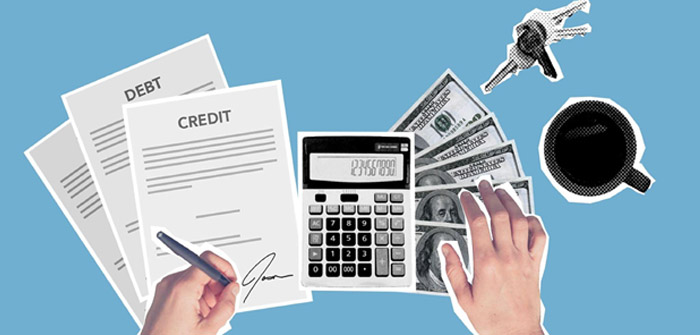There is an ongoing notion that it’s negative when a person or business has debt. However, debt can be a pivotal tool to finance a small business. Newly opened companies can utilize loans to hire new employees, purchase equipment, and fund expansion plans.
Although, if you cannot properly manage your debts, you may risk getting interest fees, which can endanger your business. Don’t fret because the information below covers the top tips you’ll need when dealing with your debts.
Collect checks immediately.
Ensure that you encourage and set rules that your customers pay immediately. You can do this by shortening the payment terms. For example, instead of giving your customers 90 days to pay for their products or services, you can shorten it to 45 days (or less) instead.
Undoubtedly, the longer the payment terms, the longer you can get paid. And some customers would take advantage of these payment terms and take all the time given to them. When deciding on the payment deadline, think about how long you’re willing to wait to get paid for your products or services.
Additionally, you can track down customers who pay late or haven’t paid yet. Check your records for the outstanding invoices and contact these individuals to remind them of their bills. Also, you can send them collection letters if they don’t respond to your calls. Finally, you can even set a late fee for each day that they don’t pay after the payment deadline.
If all of these methods fail, you can always hire a collection agency to collect for you. Collection agencies are experts in contacting stubborn customers. For example, if your business operates in Australia, you can bring your concerns to Macquarie Collections by visiting https://macquariecollections.com.au/commercial-debt-collection/.
Eliminate irrelevant business costs.
Are you struggling to find finances to pay for debts? Then, you may want to review your business costs and evaluate them. Take a look at your business, including the purchasing methods, inventory system, electricity bills, and other expenses. After this, analyze what company costs you can eliminate that are unnecessary.
For example, an end-of-weekly meal with employees using money from the business may hinder you from maximizing your profits and paying your debt. Furthermore, it would help if you searched for expenses that are further causing you to go bankrupt. These could be station space costs, sanitization services, or needless corporate mobile plans.
Ensure that you don’t spend money on irrelevant things that won’t or barely contribute to your company. By cutting unnecessary expenses, you can improve your budget and use the money you used for needless things to pay for the business debt.
Keep money habits in check.
As a business owner, if you look at your money habits, can you answer truthfully with a good grasp of handling revenue or profits? Remember that it’s hard to rewrite our habits. If you don’t know how to manage the business’ finances properly, you may find it laborious and challenging to pay off your debts. You may have to sell your business entirely.
Money habits should be checked at the roots, from the founder and business owner. So be sure to evaluate your business spending habits and have the urge to improve them. Eventually, it will help you maximize your profits due to the boost of cash flow, which will then help you pay off your business debts.
You can try utilizing new market strategies and money habits. Ensure that your goal isn’t just to eliminate your debt. Indeed, this should be one of the goals. Still, the primary purpose of a business should be its overall success and flourishment. With this mindset, you can have a better chance at the market for a long time and pay such debts with ease.
Consolidate or refinance your debt.
You may doubt this tip since it may seem counterintuitive, but continue reading. Refinancing entails that you would apply for a new loan and use the money to pay your old debt. You would be resetting the terms of your debt, and you could also get lower payment terms and much better interest rates. It is especially true if you have an excellent credit score!
Do you have several debts to pay for, like credit cards, working capital loans, payday loans, and more? Then, it would be very beneficial to consolidate it into a single payment. Indeed, it can lower your credit score, but it would just be temporary since you could pay your new loan with business profits.
In Conclusion
Having unpaid business debts can be overwhelming for a business. It’s something that you always have to think about when managing your business. Eventually, it can be too strenuous to handle due to the number of interest rates. That is why you should have a handle on your debts to save your business and let it flourish.





